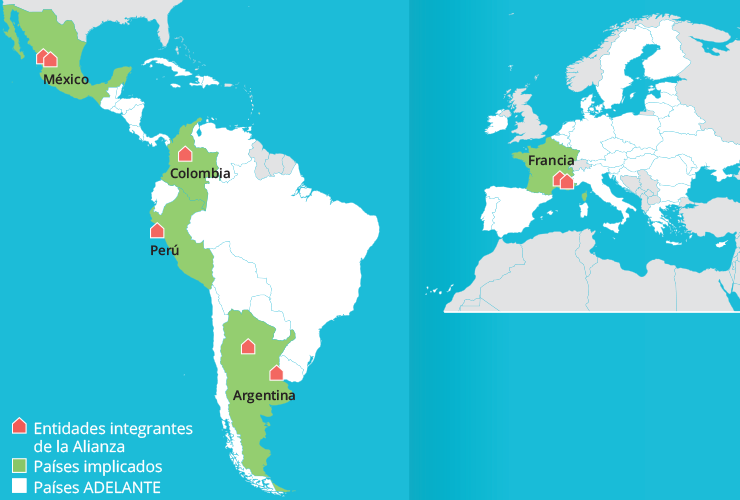
How can academic, economic, and business institutions help to democratize economies by bringing employee ownership to workers? The EU-funded Adelante 2 project, implemented by DT Global Europe, worked with Latin American countries to bring this employee ownership to local companies. This Adelante triangular cooperation initiative, focused on Employee Stock Ownership Plan (ESOP) policy, was carried out through partnerships between organizations from Argentina, Colombia, Peru, Mexico, Slovenia, and France.
The employee ownership initiative promotes business continuity and sustainability and empowers workers by showing participants how they could broaden employee ownership. This model, which can be adopted to different contexts, helps entrepreneurs to promote inclusive and sustainable growth by improving worker productivity. The model also builds the financial success of the private sector via cost savings and increased profitability, generates knowledge useful for public policy design, and helps to democratize access to financial instruments. Finally, it promotes equal access to economic resources through mechanisms that facilitate the democratization of ownership.
To help implement this model, Adelante 2 organized dialogues between experts and workers from these countries. These workshops helped workers learn to be co-owners of their companies, building a sense of belonging while also promoting policies around living wages and retirement. The political, economic and business sectors, trade unions, SMEs, academic authorities, and women-led organizations from these countries came together to achieve these goals.
More than 500 people from France, Peru, Mexico, and Slovenia benefited from the first phase of the initiative. In Slovenia, stakeholders worked with Adelante to present a draft law, study public policies, and visit companies that had already implemented the policies. In Peru, the meetings provided an insight into how to enact these policies in a country without tax incentives or legislation to promote this.
In Mexico, Rosa María Becerra, a businesswoman, shared that the meetings "opened the mind to think about new possibilities" for management, including how to take into account different legal models. Julieta Angulo, another businesswoman, welcomed the initiative to 'reduce inequalities', as she believes that insecurity in a country like Mexico is largely due to the 'economy of poverty', inequalities, and lack of opportunities. Ms. Angulo was clear that this initiative is a win-win for businesses and their employees in the region.